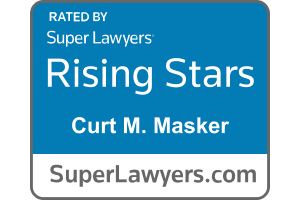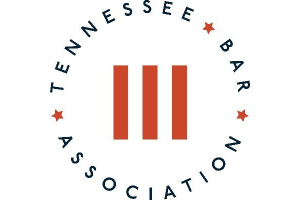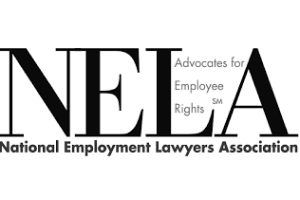for Workers
Wrongful Termination
Nashville Employment Lawyers
Our team of skilled employment lawyers in Nashville represent individuals in workplace disputes with their employers. We are relentless advocates for workers who seek justice for their wrongful termination.
Our workplace attorneys have been recognized by Super Lawyers® and Best Lawyers® for work in labor and employment Litigation based on peer review and professional achievement.
If your intuition is telling you something is off with your termination, do not wait to reach out to experienced lawyers. You can contact us online or by calling the number above for a free online case review.
Overview of Employment Law Legal Rights
As an employee in the state of Tennessee, you have legal rights designed to ensure fair workplace treatment in exchange for your labor. To be wrongfully terminated means you were fired in violation of a legal right. Although Tennessee is an at-will employment state, many exceptions exist to the at-will employment doctrine, some of which are below.
Tennessee employees have legal rights in the employment relationship that fall under one or more of the following four broad categories: (1) Statutory; (2) Common Law/Public Policy; (3) Contractual; and/or (4) Constitutional.
1. Employee Statutory Rights in Tennessee
Federal and Tennessee laws prohibit mistreatment in employment based on protected characteristics and protected activity. For example, it is unlawful for an employee to be terminated due to an employer’s:
A. Retaliation because you:
- Opposed unlawful discrimination or harassment for yourself or a coworker
- Opposed wage violations, e.g., not being paid overtime
- Requested reasonable accommodations for your disability
- Requested or took protected FMLA leave
- Requested or took protected military leave (USERRA)
- Complained about fraudulent medical billing of the state or federal government
- Engaged in protected free speech on a matter of public concern
B. Discrimination based on your:
- Race
- Age (40 and up)
- Sex
- Pregnancy
- Sexual Orientation and Sexual Identity
- Disability
- National origin
- Religion
- Color
- Genetic information
C. Violation of Protected Leave Rights
2. Common Law / Public Policy Rights in Tennessee Employment
Tennessee courts have identified several common law protections against being terminated in violation of public policy. As such, an employer is prohibited from discharging an employee because the employee invoked a right granted by Tennessee public policy. For example, wrongful termination against public policy may include an employer firing an employee for:
- Performing jury duty
- Obeying a lawful subpoena
- Testifying truthfully in a lawsuit involved the employer
- Submitting a worker’s compensation claim
- Refusing to violate OSHA and other safety laws
- Taking a meal break in accordance with state law
3. Breach of Employment Contract in Tennessee
Employees with an express or implied employment contract have additional legal rights to assert against their employer. Legal claims may include breach of contract, negligent misrepresentation, and unjust enrichment. In limited circumstances, an employer’s written representations that an employee’s job is secure may create an implied employment contract. Also, union employees have contractual rights via their collective bargaining agreement.
4. Constitutional Rights of Employees in Tennessee
Public employees may be protected from wrongful termination by the U.S. and Tennessee Constitutions. The First Amendment affords public employees free speech rights on matters of public concern. In addition, public employees may have property and liberty interests in continued employment, resulting in due process requirements such as a Loudermill hearing.
If you believe you were wrongfully terminated, call our Nashville-based employment lawyers for a free online case review.
How to Submit a Workplace Complaint
If you are still employed and believe your legal rights are being violated, follow these steps.
- Send a respectful, written complaint. Work e-mail is fine but include relevant dates and immediately print off a copy. In the complaint, be helpful and professional, offer solutions to the problem, and do not threaten.
- Be specific. Narrow down the key facts. Do not submit an excessively long complaint.
- Avoid Legal Conclusions. Do not say “this is illegal discrimination.” You can say the same thing with more tact: “I feel like I’m being treated differently because of my [protected characteristic such as gender, race, age, etc.]….” The latter is not a legal conclusion and it is sufficient without being overly aggressive.
- Send Your Complaint To the Right Person. Follow the company’s reporting procedures or if the company does not have a reporting policy use your best judgment (usually human resources).
Remember: Human Resources are not your friend. Your employer pays human resources to protect the company from you, not vice versa. Always be respectful, but keep in mind that HR personnel will not risk their careers to stick up for you.
Termination: Next Steps to Protect Your Legal Rights
If you were recently terminated under questionable circumstances, then you may be a victim of wrongful termination. Follow the 4 steps below to protect your legal rights.
1. Do Not Lash Out
Your job has been wrongfully taken from you and you are rightfully extremely angry and you probably want revenge, but do not:
- Send rude texts or e-mails to your former boss or co-workers
- Threaten to sue your former employer
- Vent on social media (do not post or tweet at all about your work situation)
Creating a paper trail of angry and inflammatory comments about your old employer will be used by the company’s lawyers to paint you in a negative light in front of a judge and jury. You want to be the calm and reasonable party in an employment law case.
2. Do Not Sign Anything
Your employer may present you with a severance agreement. Do not sign it until you have an experienced severance attorney review the specific facts of your termination. Ask the company for a day to review the agreement and then immediately contact an severance package lawyer. For more information on severance agreements, see our Severance Agreements page.
If you are not sure whether or not you need an attorney, contact one of our skilled employment attorneys in Nashville right away.
3. Collect Potential Evidence
If your case ends up in court, you want to lay a solid foundation for any potential legal claims. Even if you don’t end up in court, you need to have a case that a judge could find credible in order for your employer to consider settling the claim in your favor. Employment law cases are often difficult and you will need evidence to show that your termination was against the law. Useful evidence in employment cases may include:
- Paystubs
- Text messages
- Audio or video recordings
- E-mails
- Names and contact information for potential witnesses
- Performance evaluations
- Disciplinary warnings, reprimands, or write-ups
- Job description
- Awards, accolades, or other evidence that shows you performed well
- Attendance records
- Employee handbook, manual, or other documents describing work rules, policies, and procedures
- Pension benefits and retirement plan information, including monthly statements, and any ESOP plan materials
- Separation notice (required within 24 hours under the Tennessee Employment Security Law)
- Any other documents or records you believe are relevant
Tennessee’s Recording Law provides for one-party consent, meaning you can potentially record conversations without your employer’s consent. However, before doing so, it’s a good idea to speak with a knowledgeable employment attorney in Nashville to understand all pros and cons.
For example, you should not violate any company policy or procedure that prohibits such recordings, especially in sensitive industries such as healthcare where privacy and protecting patient information is a top priority.
Also, when collecting potential evidence, do not engage in “self-help” discovery by taking documents or accessing information that you have no right to access or possess. Doing so could potentially hurt your employment legal claims and expose you to counterclaims. Your lawyer can use formal discovery tools to request documents and records later in the case.
4. Immediately Contact a Tennessee Employment Lawyer
Do not underestimate the peace of mind that comes from understanding your legal rights. Ignorance is not bliss; what you do not know can legally harm you.
Contact an employment attorney in Nashville for a free online case review at the number above or online.
How Much Is a Tennessee Employment Law Case Worth?
The value of a given case varies significantly based on many factors, most of which are outside of your control, including the severity of the legal violation, how much money you have lost in earnings and benefits (if terminated), the type and quality of evidence, whether or not you reported the wrongful conduct, and if the harasser or company have committed similar offenses against people in the past.
That said, there are four general categories of damages in employment law cases:
- Economic Damages: Economic damages include back pay and front pay. Back pay includes lost wages, salary, and out-of-pocket medical expenses as a result of the wrongful termination. This amount is calculated from the date of your termination to when your case is decided by a jury. Front pay is like back pay except it anticipates your lost earnings into the future due to the employer’s unlawful actions. This amount is calculated from the date of judgment until a time period determined by a judge or jury.
- Emotional Pain and Suffering Damages*: The law also permits damages that compensate you for the emotional distress caused by your wrongful termination. Depression, anxiety, and other medical issues occur all too often due to employer misconduct. You may also recoup medical expenses incurred as a result of the employer’s unlawful actions.
- Punitive Damages*: Punitive damages are available in cases involving intentional workplace discrimination. These damages are meant to punish the employer and deter similar unlawful conduct in the future.
- Attorney’s Fees and Costs: If you go to trial and win your case, you may also receive your attorney’s fees and costs, which often totals well into six figures.
*Compensatory and punitive damages in employment cases are subject to a combined monetary cap under federal law. Compensatory damages are also capped under Tennessee law (punitive damages are not available in employment cases under Tennessee law). The capped amount is based on the size of the employer as follows:
- 8-14 employees ($25,000)
- 15-100 employees ($50,000)
- 101-200 employees ($100,000)
- 201-500 employees ($200,000)
- 501 or more employees ($300,000)
These limits do not apply to backpay, interest on backpay, front pay, or any equitable relief.
Statute of Limitations for Employment Law Claims in Tennessee
Employment law claims have strict deadlines called statute of limitations. If you miss this deadline, then you will be barred from going to court for your legal claims. The exact deadline(s) that may apply varies depending on what laws have been violated and when you learned of the violations. If you may have legal claims do not wait, contact an employment law attorney serving Nashville right away.
It’s Time to Fight Back – Call Our Firm Today
You deserve justice and compensation for your wrongful termination. Contact our Nashville employment lawyers today at the number above or online for a free online case review.














